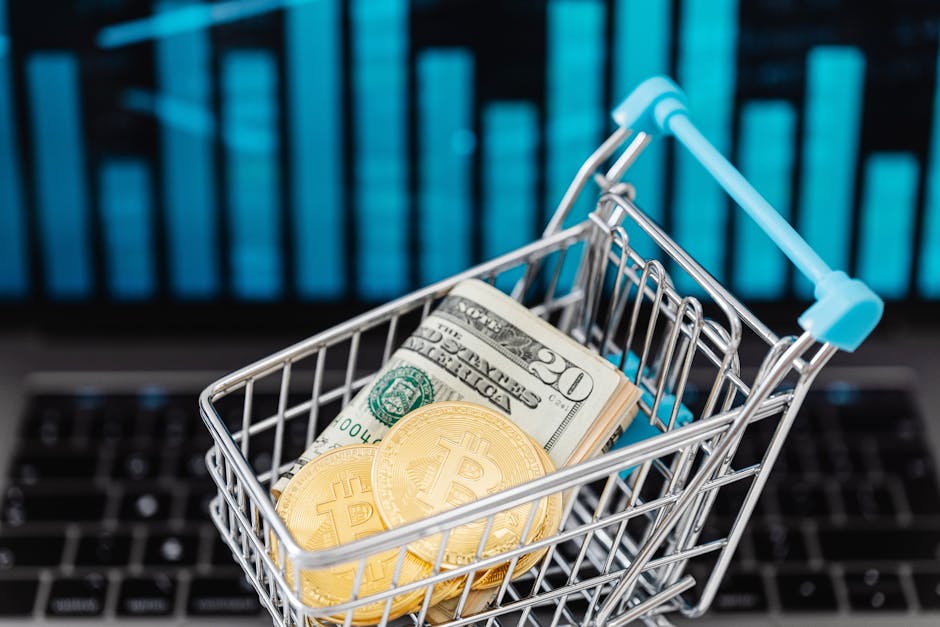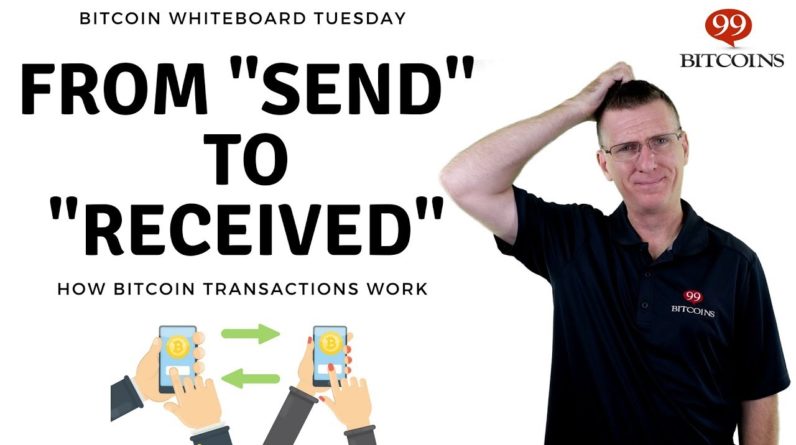
A wonderful good day to you all and welcome back! Today, or in this chapter, what we're starting today, I want to briefly introduce you to some cryptocurrencies, and in my opinion the most important cryptocurrencies. That means I will mainly focus on the pros and cons and not on the concepts behind them, but just very, very roughly break it down so you know what you're actually investing in. After all, we're here in our series on investing in cryptocurrencies, and then of course we have to know what we're actually buying. We can't buy the cat in the bag, I've already told you, that leads to nothing. That's why we want to take a quick look at what a coin can do, and I think that's best done when you're talking about the pros and cons. All right, let's start right away with Bitcoin. Bitcoin was the very first cryptocurrency ever.
That means Bitcoin is also what you normally talk to normal people, who are not so deep in the subject, who still understand what's actually going on. And that's a big advantage, because Bitcoin has of course also created all the concepts. It came out in 2009, so very, very early, actually 10 years ago. And no one believed that it would work at all back then. Now everyone is convinced that it can't be thought away. And in the paper, in the white paper by Satoshi, which was written about Bitcoin, and on which all cryptocurrencies are based, the concepts of blockchain and mining are presented first. That means we really have the foundation stone in this cryptocurrency. And of course, this also gives a lot of fame, a lot of everything, actually. And that's why the price of Bitcoin is always the one that greatly influences the cryptocurrency in general.
That means if Bitcoin falls sharply in price, then all other cryptocurrencies will most likely fall as well. Not completely and not incredibly strong, not always at least, but the trend is mostly the same. That means you will always have to take into account Bitcoin as long as it remains the most important cryptocurrency. I'm not sure if that might happen at some point, that Bitcoin is no longer the biggest. I actually hope so, because Bitcoin also has a lot of disadvantages. But of course I can't say for sure. At least at the moment, Bitcoin is extremely important and just the most famous coin in general. But they also do a lot of wrong things. And actually, there are relatively few features in Bitcoin, if you take it that way. And changes in the protocol are terribly slow. That means, first of all, I would like to call mining a huge problem. Mining is a proof-of-work algorithm. That means you prove that you put something into this cryptocurrency and you get something back for it.
Now it is the case that mining is actually only there to achieve consensus. That means to make blocks secure. So that you don't have the so-called double spend problem on the blockchain. And actually there are a lot of other options. There are also options that are not so blatant in mining itself. Because you don't have to have as many miners as Bitcoin has now.
In the end, 20 people are enough to think reasonably. Then the whole thing works. And that's a problem, of course. But Bitcoin can't really do that. They just set their algorithm like that. And that's how it is now. That's probably how it stays. But the problem is still that mining is simply heavily environmentally damaging. In comparison, Bitcoin, the network, or all miners put together, consume about the same amount of electricity as all of Israel. We are currently in May 2019 when I am recording this. That means, yes, there is a lot. And nowadays you can't really carry that anymore, if you consider how much we actually do for environmental protection. And that there are even better cryptocurrencies that don't even need it. That means, here something that urgently needs to be improved, in my opinion. In addition, the scaling. Bitcoin practically does not scale at all. You have a fixed block size in Bitcoin, which was originally 1 MB. Meanwhile, the signatures are stored in the segwit concept. I don't have to tell you that.
You get to effectively about 1.4 to 1.8 MB per block. And that's artificially limited, actually. In addition, every 10 minutes, an average block is released artificially limited. That means, it can happen that two blocks are found right behind each other. But then it can also be that a block takes half an hour to be found. That is possible and has already happened more than once. On average, every 10 minutes, a block. That means, we have a limited block. And we have, so from the size of the limited block, and we have a block every 10 minutes. That means, overall, we have a transaction limitation. That means, we can get a maximum of 3 or on average about 3 to 7 transactions per second. That depends on how complex these transactions are. And yes, I know, it's a big factor, but 3 to 7 transactions per second is not much.

It's really not much. For comparison, Visa has 25,000 transactions per second. And that's what we actually want to crack, if we want to create a really solid currency. And that's what we want to achieve with cryptocurrency. That means, here again with Bitcoin, unfortunately, it was the first one, but not everything was done right, not even close. In addition, the blockchain has also become huge, because every 10 minutes, 1.
Something megabyte of block comes out on average. Of course, you already have over 500 gigabytes on your hard drive, if you want to download the Bitcoin blockchain. Which you should do in theory, to support the network. That means, here again, difficult, difficult. Okay, in addition, we don't have real anonymity with Bitcoin, but actually only a pseudonym. If I give someone my public key, my Bitcoin address, then he can understand where this payment came from.
And if each of these public keys is public, for example through bitcoin.de and then maybe through other things, then the person simply knows exactly where I got my money from and where it went. I just have to give the person my Bitcoin address and he can look it up. That's a bit of a problem. In addition, and that's not necessarily a negative point, but not necessarily a positive point either, it has negative effects. Bitcoin is a deflationary currency. That means, and that's very, very important, I've already mentioned that in the series, there are halvings with Bitcoin. That means, every four years, or after four years, the amount of newly created bitcoins per block is reduced, by exactly half. This is done until you reach 0.something Satoshi and that's the smallest unit. In other words, nothing is being poured out anymore, if you let Bitcoin run long enough. That's sometime in a few hundred years. That takes a while. But the problem is, the less the miners get a gift when they find a block, the more people have to pay fees, so actually pay fees to carry out a transfer.
Because, as I said, the miners have electricity costs and that's not too short. So the miners have electricity costs, you have to pay for the electricity costs, because the miners will eventually no longer get a cryptocurrency, so no more bitcoins. Bitcoin is limited to a few million, and that means, at some point there will simply be no more new bitcoins. In other words, you have to pay for it, if you make a transfer. And of course that makes the network a little more inefficient, if I think about it, that every time I withdraw money somewhere with my card or even pay, that I somehow get $10, or even $100, or who knows how expensive it will actually be, if I had to pay, then it would make the network absolutely useless, you could almost say. That means, sooner or later, a solution has to come. And yes, that is possible. Of course you can patch the code, but it's always relatively difficult to see, as we will notice later in the presentation of Bitcoin Gold and Bitcoin Classic, Bitcoin Cash, I always say Classic, sorry, Bitcoin Cash. All right. Yes, that should have been it for Bitcoin for now.
Many advantages, many disadvantages, above all, but the biggest advantage is that it is the most famous coin. As a result, it is also extremely dominant in price and probably will be with most altcoins. All right, that's it from my side. See you next time. Until then. Ciao..




